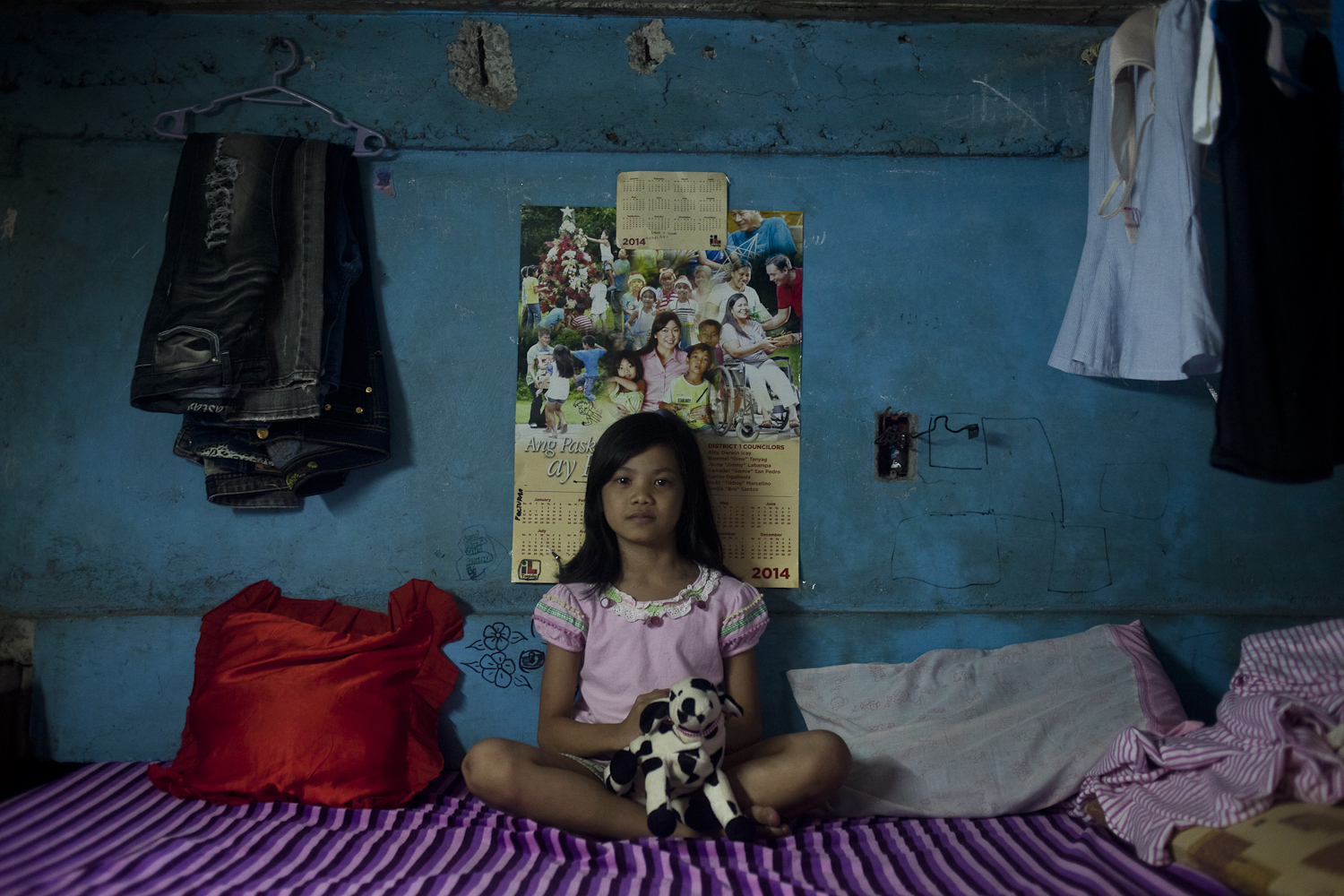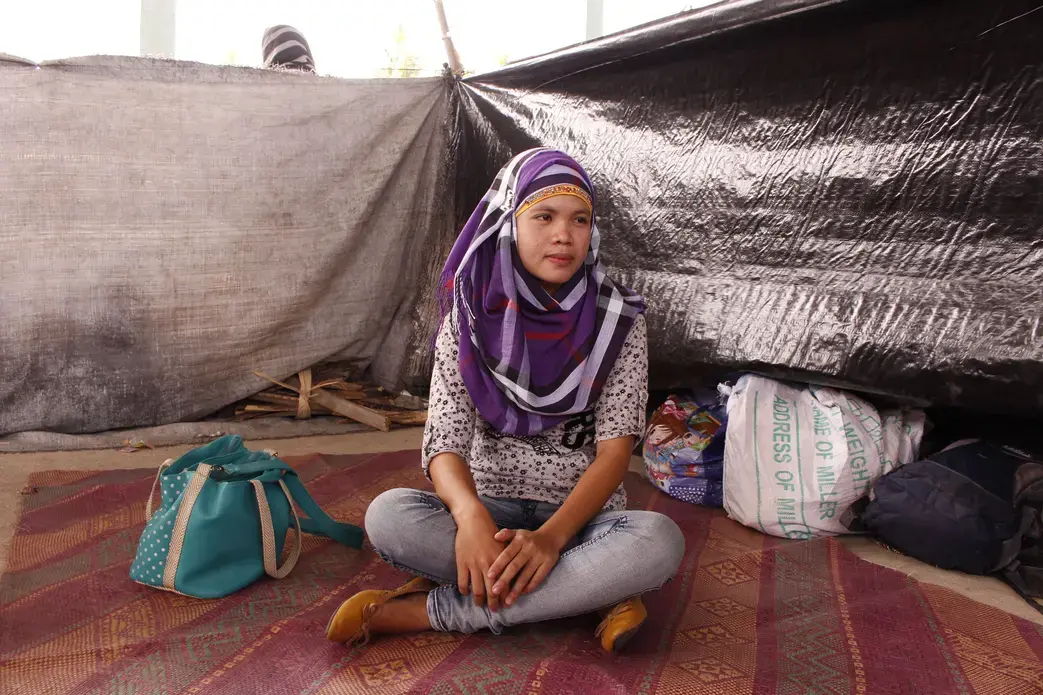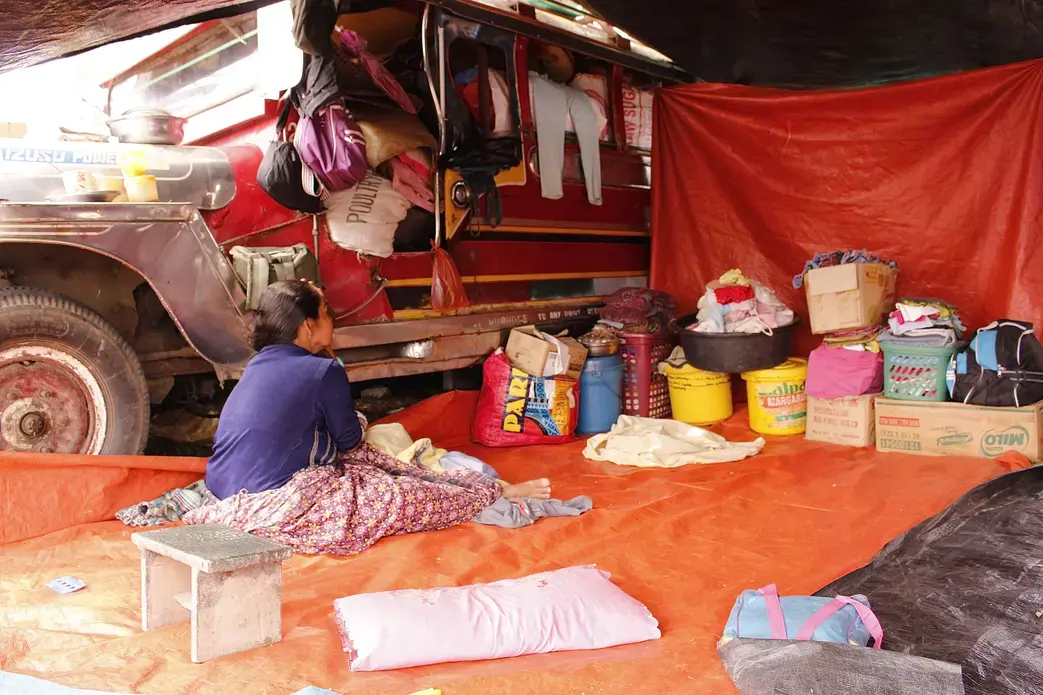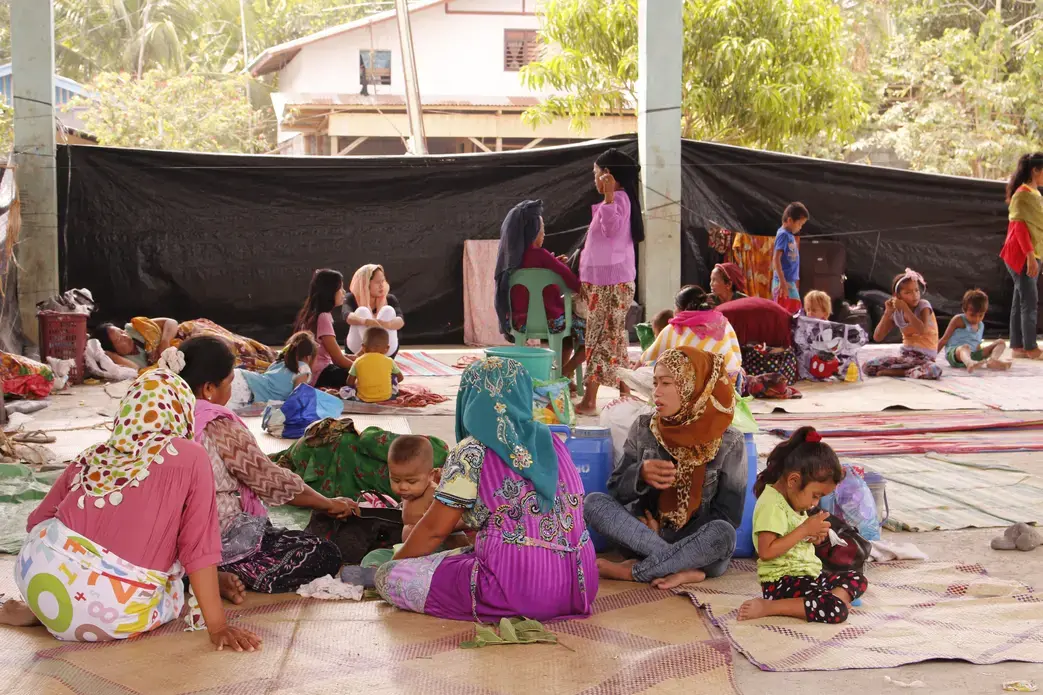Parida was 21 when she graduated in business management. She was the first in her family to get a bachelors degree, but instead of looking for a job in a corporate office, she set her sights on working in Kuwait as a domestic helper.
Parida had never been away from her province in the southern Philippine island of Mindanao. She did not even know where Kuwait was; she only knew that it was better to seek employment there than in other places in the Philippines. "Going to Manila for work did not even cross my mind," said Parida. "They told me I would have a hard time because the cityfolk see Muslims as terrorists."
So Parida packed her bags and set out for a country she had only heard of, thinking that this would give her a chance to financially assist her family.
Muslim women such as Parida are among the 10 million Overseas Filipino Workers scattered in more than 100 countries. Four decades of armed conflict in Muslim areas, coupled with unregulated recruitment, have forced Muslim women such as her to leave the southern Philippines and look for employment abroad, often in low-paying jobs as domestic helps.
The International Organization for Migration has identified Mindanao as a prominent source of irregular female migrants, particularly to Muslim countries and regions such as Malaysia and the Middle East. Because of their irregular status, most Muslim women from the Philippines do not have ready access to employment or labour rights, making them vulnerable to trafficking and abuse.
Compared to Muslim men, Muslim women also are less likely to find employment opportunities locally. "Our men can farm during the day and take up arms in the evening, but for girls, there is nothing to do in Mindanao," said Parida.
The internal conflict began in the 1970s when the local population of southern Philippines mainly led by Muslims — who comprise 5 to 10 per cent of the total population — began fighting for an independent state. An agreement in 1989 established the Autonomous Region in Muslim Mindanao (ARMM) and gave these predominantly Muslim provinces a degree of self-rule.
An on-and-off battle with the government in a longstanding insurgency, clan feuds, banditry, presence of militia and proliferation of firearms have made peace and order elusive for the estimated 4 million population of ARMM.
Economic development and growth also remain out of reach for ARMM, which consistently ranks as one of the poorest provinces in the Philippines with a poverty incidence of 48 per cent.
"More boys [than girls] drop out of school because they are expected to work at an early age or take up the cause. This automatically limits their employability here or abroad," said Zahria Mapandi, executive director of Al Mujadilah Development Foundation, a non-profit organisation of Muslim women in southern Philippines advocating peace and gender justice.
By default, it is the women who leave, answering the call of Muslim employers for Muslim domestic helps and nannies who understand their religion, their culture and even their food preferences.
According to the Philippine Statistics Authority, in certain areas such as Parida's province in the ARMM, for every 10 female labour migrants, there are only three or four male labour migrants.
"The reason that many young women want to leave is the extreme poverty in the region, which is linked to the conflict and low level of education here," said Jurma Tikmasan, chairperson of Nisa Ul-Haqq fi Bangsamoro, a group of Muslim organisations advocating women's rights in the context of Islam. "We are constantly displaced (when conflict breaks out) and our classrooms are used as evacuation centres. How can you possibly continue studying under such circumstances?"
A 2008 survey conducted by the Department of Education (DepEd) showed that ARMM has the lowest literacy rates at 71.6 per cent compared to the national rate of 86.4 per cent. Only about 46 per cent of ARMM residents have completed at least elementary school compared to the national rate of 79 per cent.
The bone-crushing poverty pushes people to find various ways and means to survive.
In a forum on the social costs of migration, Institute of Labor Studies director Cynthia Crus reported receiving anecdotal information on husbands in Mindanao sending their wives to work abroad. The alleged practice, she said, "is called 'wifery' in the sending communities".
"We don't have hard data to prove it, but we have heard stories that the girls also leave because they want to avoid an arranged marriage where they can be married off at the age of 15," said Tikamasan.
The Code of Muslim Personal Laws, a special law that governs Muslims in the Philippines, allows men to have more than one wife and allows for the marriage of girls at the onset of puberty.
Unregulated employment recruitment and non-registration of newborns, common in ARMM, make it easy to modify personal information that would allow labour migrants to meet minimum age requirements.
"It is a known and accepted practice for parents to connive (with authorities) to change their daughter's personal information such as age so she can work abroad," said Tikmasan.
Parida did not fake her passport when she first left for Kuwait, but several young women do so to enhance their job prospects.
A woman who left the Philippines to work as a domestic help in the Middle East by adding 10 years to her birth certificate and her passport says, "It was easy. I just had to say, 'plus 10' and they knew what I meant."
However, she ran away from her employer who, she says, exploited her and withheld her wages.
"We want to help our families. If we don't, who else will?" asks Parida, resigned that despite her business degree, only menial jobs have been made available to her.
Back in ARMM, Saida Panag finds herself displaced again. She and her family live in a covered basketball court, with about 20 other families.
She has just finished high school, at 23. It is a late age, she admits, but she's lucky to have gotten that far in her schooling. Running for cover since 2008, she has moved from one displacement camp to another.
Sometimes it is because of the skirmishes between the government and the insurgent forces, sometimes it is the clashes between families. It doesn't matter anymore, the end result is the same: a life of fleeing, with days blurring into months of uncertainty.
The second of nine children, Saida is eager to work to help her family. "I want to go abroad," she said.
"What kind of work do you hope to find there?" I ask her.
The other women in the camp begin to gather around her and she hesitates to answer, looking down. Some of the women who had been abroad and have come back, answered for her, "DH, DH [domestic helper]."
"I want to be a teacher," Saida said.
"Teacher!" a woman said. "You'll only be able to work as a DH."
Saida looked at me then, with the same resigned look I saw on Parida's face. "I guess I'll be a DH," she replied, as if sealing her own fate.
In his last State of the Nation Address last July 26, President Benigno Aquino III urged legislators to pass the Bangsamoro Basic Law (BBL), a law that would establish a framework for a peace deal that was signed in 2014.
The peace deal requires the primary insurgent group, the estimated 12,000-strong Moro Islamic Liberation Front to gradually decommission their arms.
The BBL stalled in the lower house last January after 44 members of an elite police force were killed in a clash with the Front members. The BBL, said Aquino, would bring the long-awaited peace in Mindanao and allow the province and its people an equal chance at progress.
But even when passed, the effects of this peace agreement are not going to be felt anytime soon.
Parida, who has known no other life except one of conflict, is not optimistic. "Peace? It's something that we have hoped for a long time. But we have always been disappointed," said Parida.
In the displacement camp in ARMM, thousands of miles away, Saida feels the same way.















